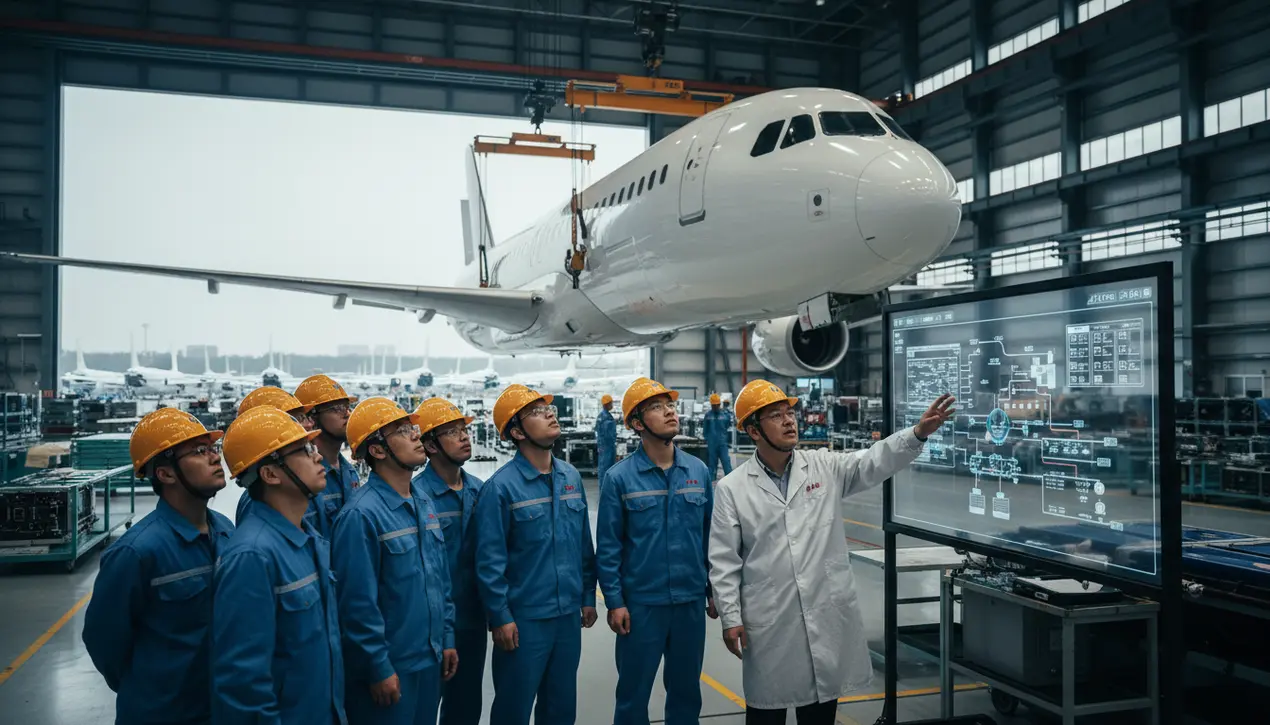
Financestocks
China's C919 aircraft maker receives state capital injection.
OL
Oliver Scott
5 hours ago7 min read
In a strategic maneuver with profound implications for the global aerospace sector, China's leading aircraft manufacturer, COMAC, has secured a substantial capital injection from its state backers, a decisive move that significantly expands its registered capital and signals a renewed, state-backed offensive against the entrenched Boeing-Airbus duopoly. This financial reinforcement arrives at a critical inflection point, as the manufacturer confronts a significant production bottleneck that has throttled its ability to scale output of the C919 narrow-body jet, a flagship project central to Beijing's ambitions of technological self-sufficiency and global market penetration.The timing is not incidental; it comes as competition with the Western titans intensifies against a backdrop of a persistent global supply chain crunch, which has itself slowed turnaround rates and delivery schedules for all major players, creating both a vulnerability and an opportunity. For geopolitical risk analysts, this capital infusion is less a simple bailout and more a calculated escalation in a long-term, high-stakes industrial policy war, reminiscent of the state-backed industrial pushes that characterized the rise of European and American aerospace giants in the 20th century, albeit with the full force of 21st-century state capitalism.The immediate objective is clear: to ramp up production lines, secure a more resilient supply chain for critical components like jet engines and avionics, and remount a credible challenge in a market where single-aisle aircraft are the workhorses of global aviation and represent trillions in future revenue. However, the path forward is fraught with operational and geopolitical risk.While the C919 has secured hundreds of orders predominantly from Chinese airlines, its international certification remains a formidable hurdle, with regulatory bodies like the FAA and EASA likely to scrutinize every bolt and line of code under the lens of both safety and escalating techno-nationalist tensions. A plausible scenario sees the C919 dominating the domestic Chinese market, effectively creating a bifurcated global aviation sphere, while a more ambitious outcome would see it making strategic inroads in emerging markets and nations within China's political orbit, leveraging economic statecraft to circumvent Western regulatory barriers.The response from Boeing and Airbus will be telling; expect them to leverage their deep supplier relationships and decades of operational data to further squeeze efficiency and potentially engage in price competition in key battleground markets, even as they navigate their own production and regulatory woes. This state-backed capital is not just funding an airplane; it is underwriting a fundamental recalibration of global aerospace power dynamics, and the coming years will determine whether COMAC can transition from a protected national champion into a genuine, disruptive global competitor, or if it remains constrained by the very state support that enables its existence.
#C919
#COMAC
#aircraft manufacturing
#state investment
#supply chain
#aviation market
#featured
Stay Informed. Act Smarter.
Get weekly highlights, major headlines, and expert insights — then put your knowledge to work in our live prediction markets.
Related News
Comments
Loading comments...
© 2025 Outpoll Service LTD. All rights reserved.